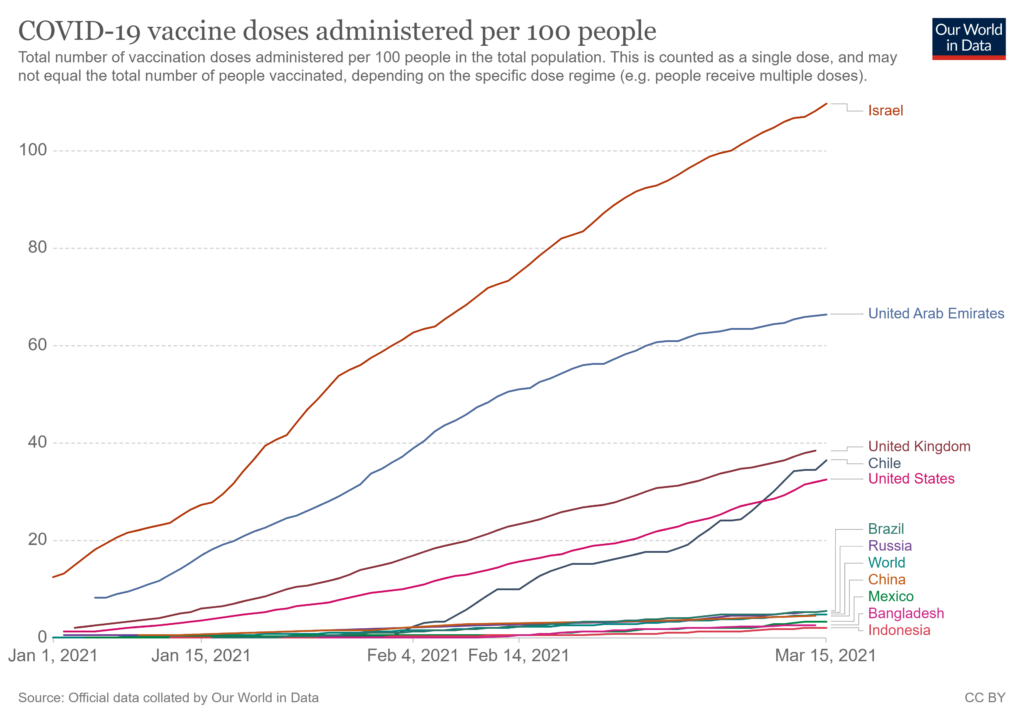To get people vaccinated for COVID-19, a lot of things have to go right. First, you have to have purchased the vaccine. Second, you need a supply chain to be able to deliver the vaccine. Third (or perhaps first) you need people who actually are interested in receiving the vaccine.
As you can see from the figure below from the University of Oxford, there is significant variability in vaccine doses administered per 100 people, with Israel far out in front.

Why is Israel so far ahead? One reason could be their “green pass” system which incentivizes people to get the vaccine. Wilf-Miron et al. (2021) explains:
This proposed model, termed the “green pass,” would allow access (currently limited to 6 months) to social, cultural, and sports events, as well as to gyms, hotels, and restaurants, for individuals with immunity, whether based on having recovered from COVID-19 or being fully vaccinated (1 week after the second dose). The green pass would also give exemption from quarantine (ie, the need to isolate for 10-14 days after contact with a confirmed COVID-19 case or upon returning from international travel). The aim of the pass is to encourage citizens, including those at lower risk of severe COVID-19 disease, to receive vaccination in a national attempt to achieve 95% immunization rate, presumably a sufficient percentage to reach herd immunity…
Individuals who have been vaccinated can download the pass from the Israeli Ministry of Health app or website, or use a printed document with a QR code. They will be required to show this permit to purchase tickets for events or on entry to certain venues. Pass forgery is regarded as a criminal act punishable by fine or incarceration.
However, the green pass system is not a cure-all. While it likely would incentivize more vaccination, some people still will be hesitant to be vaccinated.
In a recent survey conducted in 2021, among 503 Israelis, 21% reported not intending to be vaccinated soon. Of these individuals (n = 106), 31% said the offer of a green pass and the associated benefits would possibly or definitely persuade them to get vaccinated, whereas 46% said that incentives would not persuade them
This is certainly an interesting approach. The “green pass” allows people to opt out of vaccination if they so choose, but would reduce the externality costs these individuals could impose on others by limiting their access to the spaces where COVID-19 could be readily spread (e.g., concerts, sporting events). It will be interesting to see quantitative estimates as to whether the green pass has been successful.